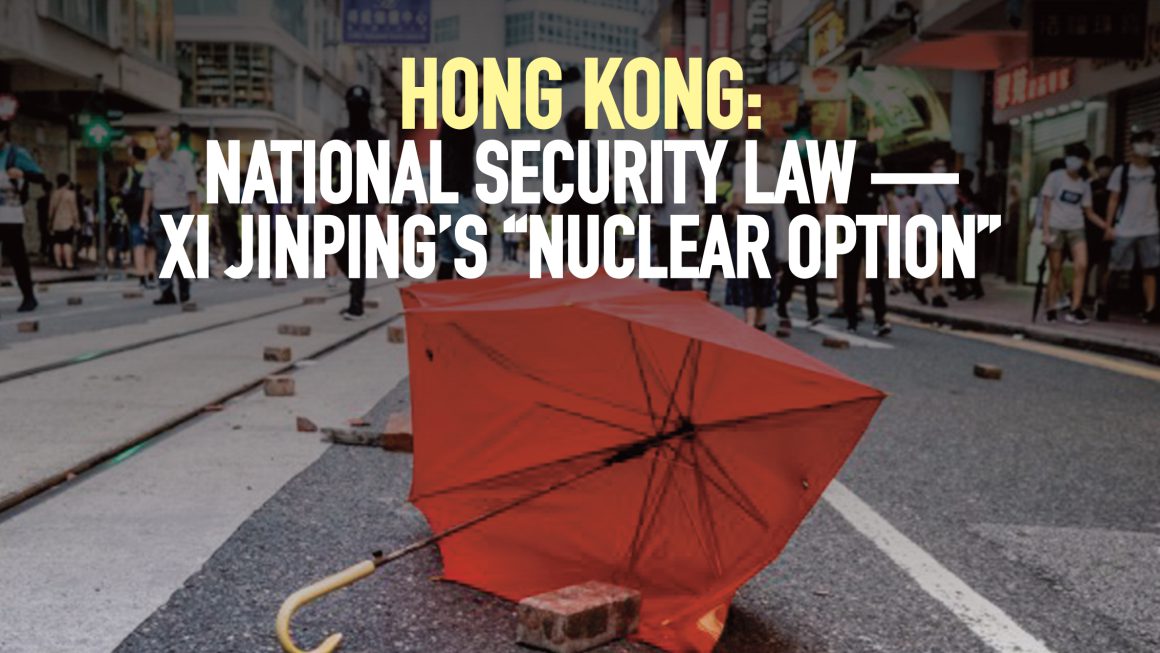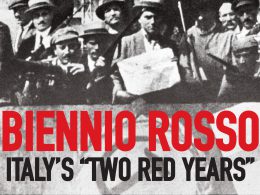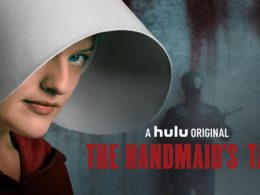By Per-Ake Westerlund and Vincent Kolo (ISA)
The effect of the Chinese regime’s new law is similar to a military coup or second “June 4 (Tiananmen)” but using laws, secret police and massive levels of cyber surveillance instead of tanks.
The scope of the new law has horrified legal experts and democracy activists, not only in Hong Kong. The law is much more draconian than most commentators expected. The capitalists and tycoons in Hong Kong, who support the law and claimed it would be “narrowly applied”, have been proven completely wrong.
For the anti-authoritarian struggle in Hong Kong and China, and the historic mass protest movement of last year, this represents a serious defeat. But it is a defeat that may not be as long lasting as the dictatorship hopes.
The new law was implemented one hour before midnight on June 30, deliberately timed to achieve maximum shock effect before the annual July 1 public holiday, the most important protest day in Hong Kong’s political calendar. Since then every day new draconian measures have been announced, widening the scope and severity of the new law.
The most important aspect of the law is not what it says but who will enforce it. Mainland secret police and CCP agents will operate openly for the first time, and with extremely wide-reaching powers. New agencies have sprung up within days for spying and gathering intelligence on political activists, and to enforce the national security law, bypassing and overriding local state forces when necessary.
The man Beijing has put in charge is a notorious hardliner, Zheng Yanxiong, who was previously secretary general of the Communist Party committee in Guangdong. Zheng made his name in 2011 by attempting to crush the protest movement in Wukan, a village in Guangdong. His superiors at the time were forced to sideline Zheng because they saw his hardline tactics in Wukan as counterproductive. This however was just before the era of Xi Jinping (Xi came to power in November 2012).
Irrelevant local administration
The repulsive right-wing Hong Kong government and pro-CCP capitalist establishment are of course wallowing in their chance for revenge and the feeling of a sudden power surge — they are feared for the first time since last year’s protests erupted and made them the object of disgust and ridicule. But it is not the Hong Kong government that is directing this process. The new law shows it is more irrelevant than ever.
The myth of ‘one country, two systems’ i.e. a degree of political autonomy under the rule of the Chinese dictatorship is now scrapped once and for all. This is a historic, and potentially reckless, departure for the CCP regime, which can invite massive retaliation from rival capitalist regimes around the world, with Hong Kong catapulted into the role of a new ‘West Berlin’ in the escalating Cold War between Chinese and Western imperialism.
Read more ➳ Hong Kong: People see this as the “final battle”
Hong Kong’s role and importance in the past was not just as Asia’s foremost financial centre, with a heavy presence of Western banks and companies, it also played the role of a political shield for the dictatorship. Beijing could maintain the illusion that it was open to some limited democratic reforms by preserving Hong Kong as a “second system” within “one country”.
For a time in the early years after the handover this was not simply a subterfuge — previous CCP regimes did not exclude the possibility of allowing a greater degree of bourgeois democracy in Hong Kong, using it as a ‘guinea pig’ for possible democratic experimentation in China at a later stage. But even before Xi Jinping came to power the regime had decisively abandoned this idea.
The dictatorship had come to realise that even small democratic concessions — a relaxation of censorship, a more independent judicial system — would set off a chain reaction ultimately leading to its own collapse. From that point onwards Beijing’s objective has been to turn the clock backwards in Hong Kong. Xi Jinping’s rise to power further cemented this totalitarian lurch.
Growing by the day
The introduction of the national security law consciously aims for a big bang effect. There are daily announcements of new extreme measures. It is like a monster that grows bigger by the day. Partly this reflects the fact that the dictatorship was so eager to stun the world with its display of power over Hong Kong that there was no detailed plan. The actual mechanics of the law are still a work in progress. These are some of the new aspects announced in the past few days alone:
Sunday 5 July: International and Taiwan political parties, organisations and NGOs, will face demands to open their membership registers and financial accounts to Chinese agents. Representatives of organisations refusing to do so will be sentenced to up to two years in prison if they ever go to Hong Kong or China, regardless of their citizenship. This poses the danger of prosecution to socialists including ISA members in any country. The extraterritorial scope of the law is unprecedented.
“If you’ve ever said anything that might offend [China] or Hong Kong authorities, stay out of Hong Kong,” Donald Clarke, an expert on Chinese law at George Washington University, wrote in an analysis (quoted in Hong Kong Free Press).
Monday 6 July: The police can conduct house or workplace searches and wiretapping wherever they want, without obtaining a search warrant. The police can also block anyone “under investigation” from leaving Hong Kong. Telecom and internet companies are now compelled to hand over their customers’ registers. This unprecedented extension of police powers and all other measures under the new law are implemented without any consultation with Hong Kong authorities — they are spectators just like us.
Tuesday 7 July: Books branded as illegal by the new law will be removed from schools and libraries.
“If any teaching materials have content which is outdated or involves the four crimes under the law, unless they are being used to positively teach pupils about their national security awareness or sense of safeguarding national security, otherwise if they involve other serious crime or socially and morally unacceptable act, they should be removed,” stated the order from the Education Bureau.
To enforce mainland Chinese rules and restrictions for schools and universities in Hong Kong has been a long-term goal for Beijing.
Four crimes
The law names four crimes punishable by life imprisonment (or the death penalty if the accused is sent for ‘trial’ in China). These are framed in extremely vague terms and therefore can be used by the regime as it sees fit. Activities and viewpoints can be declared illegal from one day to another.
Subversion will include any criticism of the dictatorship in Beijing. The slogan “End one-party dictatorship” has been a central demand of the Hong Kong democracy struggle from its inception; both the slogan and organisations that use it could now be outlawed.
Secession covers demands for independence or greater autonomy for Taiwan, Hong Kong, Tibet and Xinjiang. Any organisation that so much as calls for “self-determination” is in breach of the new law. This means that Mao Zedong himself, who in words if not really in practise advocated the right of national minorities to self-determination, would face life imprisonment under the new law.
“Reclaim Hong Kong, Revolution of our times” — one of last year’s most popular protest slogans — has already been banned under the new law on the grounds that it amounts to “secession”. ISA has never supported this slogan because it is associated with Hong Kong’s right-wing nativists and points in a confused nationalist direction away from the need to forge a united movement with mainland Chinese workers. But by banning the slogan the CCP has guaranteed it will exercise an even more powerful hold on the minds of workers and youth in Hong Kong and can even gain an echo among mainland workers and young people.
Taiwan’s governing DPP has warned its citizens against travel to Hong Kong because they could be arrested under the new law if they have made any public statements or posts supporting Taiwan independence. Fully 54 percent of Taiwanese people support full independence for the island in recent opinion polls, which is the highest level ever and a direct result of Xi Jinping’s aggressive anti-Taiwan policies, further reinforced by the crackdown in Hong Kong.
Terrorism includes a wide range of activities with no connection whatsoever to actual terrorism. This label has been widely used by both the local pro-CCP establishment and mainland media to describe last year’s protests. Disrupting public transport, as with the protests at MTR (metro) stations last year, could be classified by the CCP police as “terrorism”. Also any act in support of such protests, such as donating food and drinks to protesters or giving medical attention to the injured, will be illegal, thereby covering not only frontline protesters but also a potentially huge section of the population.
Colluding with foreign forces to undermine national security covers any international links or contacts, including Taiwan. While this is likely to be used against certain groups and politicians that have called on the US and other foreign powers to impose sanctions and pressure on the CCP, it can also be used against political organisations, trade unions, NGOs, and any group that has a membership beyond Hong Kong’s borders and criticizes CCP rule.
Journalists and media in Hong Kong are also bracing for a crackdown with the newly established national security agency ordered to “take necessary measures to strengthen the management” of media and NGOs. Hong Kong’s Chief Executive, Carrie Lam, did not calm fears when she said, “If journalists can guarantee that they won’t breach this law, then I can also guarantee the same.”
A recent survey by the Hong Kong Journalists Association shows that 87 percent believe freedom of the press will be “severely affected” by the law, and 90 percent believe journalists’ safety will be threatened.
Global context
Xi Jinping’s brutal move against Hong Kong must be seen in the context of a series of actions taken by the Chinese regime recently, particularly by the military. Its border conflict with India is the most serious since their 1962 war, its fighter jets have entered Taiwanese airspace several times and for the first time China’s navy is conducting naval manoeuvres in three seas at the same time, in the East China Sea, the South China Sea and the Yellow Sea. China has also sent vessels into the disputed waters near the Diaoyu (Senkaku) islands controlled by Japan, in protest at the local government’s decision to rename certain features on the islands.
Read more ➳ China: Has the pandemic strengthened or weakened Xi Jinping?
Xi Jinping is seemingly engaging in battles everywhere, including a sharpening conflict with Australia, with which China previously enjoyed booming economic relations. Two Canadian citizens in China have now been charged with espionage and could face the death penalty, in retaliation for the arrest in Canada of Huawei deputy chair Meng Wanzhou, who is also daughter to Huawei founder Ren Zhengfei.
The moves against Hong Kong are therefore not only or even primarily about Hong Kong. The declared aim, to stop the mass movement that gathered millions in demonstrations in 2019, did not necessitate the CCP using the “nuclear option” which is what the law amounts to. The anti-authoritarian protest movement was in fact already on its way down, having run up against its own internal contradictions: the lack of a clear political program and above all of an organized working class base to draw together and direct the struggle through a much more complicated phase.
The latest severe measures may have a shocking effect in the short term and this is clearly a defeat for the movement. By learning key lessons and shifting direction the movement can recover in the future. The aim of the law is to spread terror, not just in Hong Kong but also in mainland China where the rumblings of discontent grow louder. China is in a deep economic crisis as a result of Covid-19, following upon the effects of the trade war with the US and the general slowdown in the Chinese economy of the past 7–8 years.
Xi Jinping also wants to project strength against any opponents within the CCP-state and the military. The internal power struggle is now a decisive feature of political developments in China, reflecting the wider crisis in society. Xi is struggling to protect his own position and his plan for a third term, based on a 2018 constitutional amendment, which now no longer looks certain.
Xi’s hardline domestic and foreign policies are seen as troublesome distractions by a layer of the ruling elite who see the primary task as the need to boost the economy. But Xi cannot easily change political direction because doing so will seriously damage his authority. As rival factions sharpen their knives, Xi has in some respects come to resemble his American counterpart Trump, placing ever bigger bets on nationalism as his main card and searching for new conflicts as a way to demonstrate his potency and force society and the CCP-state to unite behind him.
Trump’s deal
Western imperialism has so far condemned the new law sharply, but any counter actions have been relatively mild. They want to portray the conflict as “ideological”, democracy versus dictatorship. This is entirely hypocritical, since the US and the EU have no problems with dictatorships in general, for example Saudi Arabia. Trump has repeatedly expressed his admiration for Xi Jinping and in Hawaii last month, with Mike Pompeo representing the US, he seems to have struck a new deal with Xi to rescue the ‘phase one’ trade deal between the two countries. It is rumoured that in return the US president agreed to tone down measures against China over mass repression in Xinjiang and possibly also Hong Kong.
Read more ➳ Hong Kong: Power grab by Xi Jinping to smash democratic rights
Beijing’s increasingly provocative actions, however, will expose the relative weakness of the Western powers if they don’t act. Given the stakes involved in the new Cold War, it is more likely we will see a hardening of positions on both sides over Hong Kong because of its symbolic importance in this global struggle. When Western governments act of course it will be primarily to defend their banking and business interests. The Chinese regime might have miscalculated and countermeasures could be more severe than it anticipated. The inter-imperialist conflict is sharpening and only in its beginning.
For socialists and activists in Hong Kong this is a very dangerous development. For socialists elsewhere it is a warning, underlining the character of a new period we have entered, with sharper and more explosive turns and increased conflicts, new struggles and the urgent need for real socialism and democracy based on the power of the working class.











